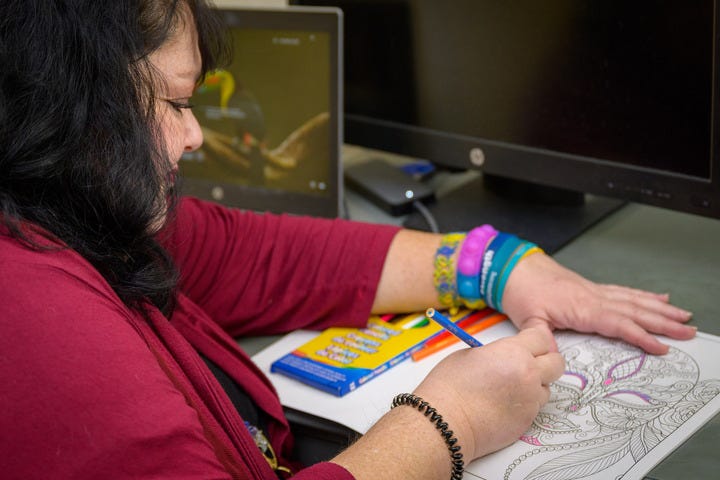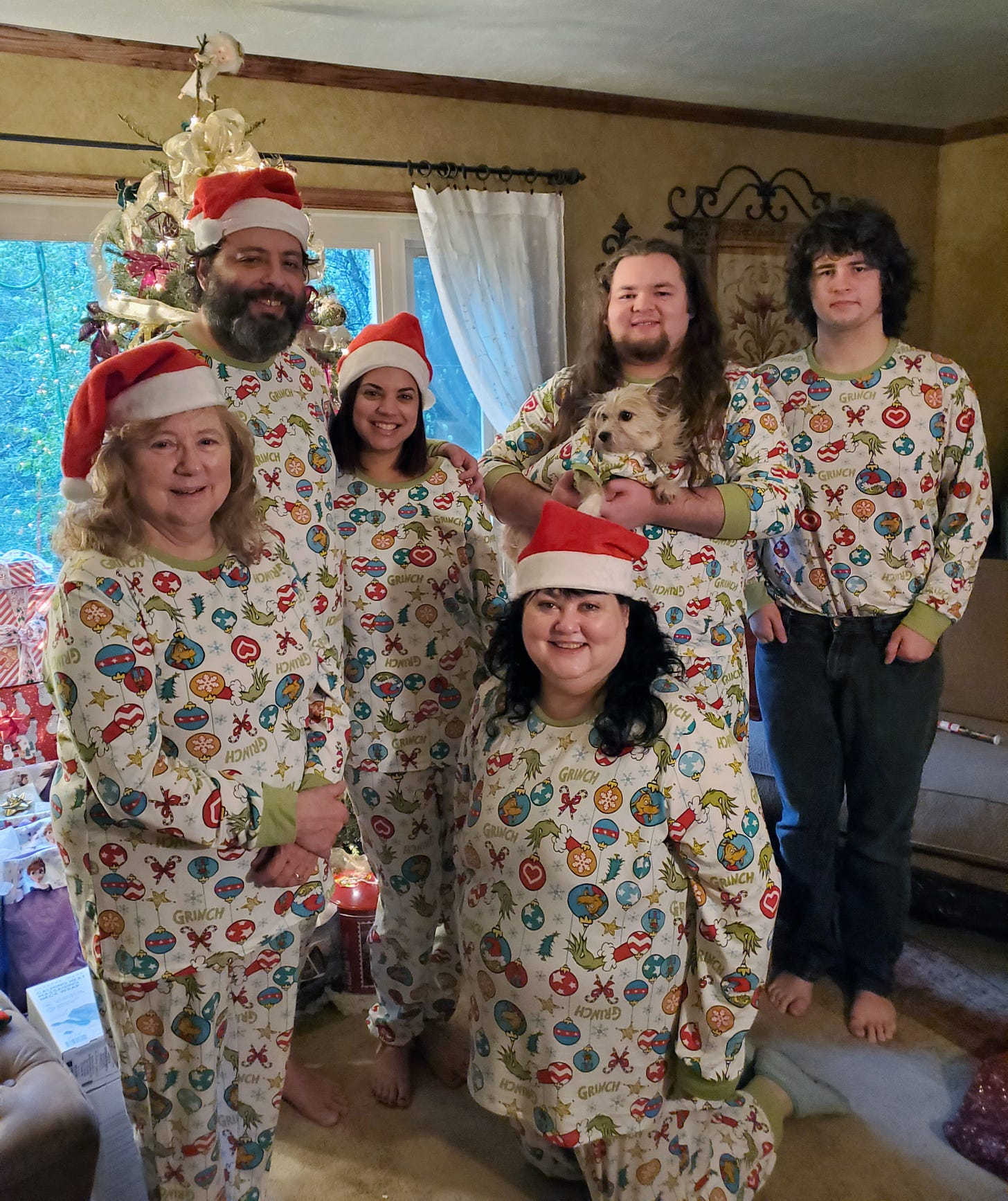Mentis wellness tips: Finding space for quality family time during the holidays
By Jeni Olsen
NAPA VALLEY, Calif. — ’Tis the season to be merry and bright, right? Yet holidays can easily become hectic and overwhelming, especially for those of us who work and have families. Holiday preparations, shopping, social engagements and work deadlines compete for our limited time. We hear about the importance of slowing down and enjoying the “happiest time of year” with our loved ones, but that can seem impossible with endless to-do lists. Parents and caregivers face an additional burden of creating a somewhat unattainable magical holiday season for their children while balancing work and life demands. To help us learn more about how we can carve out quality time with our children during the busiest season of the year, I’ve interviewed Lisa Davison, a clinical therapist at Mentis who works with children and youth. She has a lot of valuable information to share.

Please share about your role at Mentis.
I am a mental health therapist, and I have been with Mentis for six years. I work in our Calistoga school district, providing therapy for children in elementary school through high school. I have two grown kids of my own, Luke and Jathan. In addition to my role in schools, I facilitate the English Domestic Violence support group for another local nonprofit, NEWS Domestic Violence and Sexual Abuse Services. Early in the new year we are going to be helping parents understand how they can support their children who have experienced domestic violence. In my practice, it’s important that therapeutic healing centers around children and youth.
How can busy parents carve out time to connect with their kids during the hectic holiday season?
Quality is more important than quantity when it comes to spending time with children. This is good news for busy parents! Give your children your undivided attention without distractions for a few minutes every day. Be present during daily rituals, such as bath time or bedtime, instead of multitasking during these rituals. Show interest by asking about their day, talking about what’s going to happen the next day, making art, reading or singing together. As you prepare for the holidays, include your kids in the preparations. It might take a little longer to complete these tasks, but it will help deepen your bond with your children. Let them wrap presents, decorate, cook or bake with you. Sharing chores and responsibilities is a great way to connect with your kids, and it makes them feel important and valued. An added bonus may be that they are more likely to talk to you while you are engaged in an activity together, especially when the focus isn’t on them. You can incorporate the spirit of giving into your holiday season by doing something nice for others as a family. When my youngest was 9 years old, he wanted to bake cookies and take them to the police station to show our appreciation for keeping us safe.

You incorporate art and play into your therapy. Can you share some creative ideas that parents can do with their kids to support their mental health?
Play games with your kids. I recommend the following games and use them often in my practice: Candyland, Chutes and Ladders, Uno and Yahtzee. Yahtzee now comes in a variety of themes for different age ranges. Color with your children. Studies show that coloring has the same positive effect on the brain as meditation. It calms the brain, promotes mindfulness and helps us physically relax. Experiment with coloring books and art materials. Try colored pencils, crayons (Jeni’s note: who doesn’t love the smell of Crayolas!) and markers.
If a parent is concerned about their child’s feelings, how can they start a conversation with them to learn about what they’re feeling and/or struggling with?
Drawing can help children express emotions that they cannot describe with words. If your child is struggling emotionally, break out the markers and ask them to draw what they feel. Have them explain their drawing to you if they’re open to it. Encourage them with prompts such as “You seem angry. What color is that? Can you draw your anger?” Draw alongside them and narrate what you’re drawing, which may encourage them to do the same. Even if your kids don’t open up verbally, drawing is a beneficial way for anyone to express and process emotions. Some of the best conversations I have had with my boys have been while we are drawing or coloring, even when they were teenagers. When the focus is not on them, they are more likely to open up.
Going for a drive is also a great way to encourage conversations with your kids, especially teenagers. When you’re not staring at them and expecting an answer, they are more likely to open up. For more ideas about carving out space for conversations with teens, have a look at the column Jeni wrote a few months ago.
What are some simple things parents and caregivers can do to take care of themselves?
First of all, it’s important that parents understand that caring for ourselves is the most unselfish thing we can do for our children and families. If you don’t take care of yourself, you will not be able to take care of anyone or anything else. Give yourself permission to spend as little as 10 or 15 minutes a day doing something nice for yourself. It’s good for your physical and mental health and it’s really good for parenting. You will be in a better position to take care of anyone or anything else that needs you. Take time to read an article while sipping coffee or tea, listen to music, go for a walk or simply wander around outside breathing fresh air. Find somewhere that is quiet and close your eyes. Whatever you do, it is important to tell yourself, “I am doing this for me because I need it and I deserve it.”
Is there anything else you’d like to share that might help parents and families from your experience as a therapist?
Remember there is no such thing as a “perfect” parent, but there are many ways to be a good parent. The great news is that you don’t have to be perfect — just be the best parent you can. Your children don’t need you as a friend; they have friends. They need you to guide them to be good humans. This happens naturally during quality time spent together, when you are modeling how to be in relationship, care for your own needs and care for others. It is the little things that make the biggest impressions and the fondest memories.
. . . . . . . . . . . . . . . .
If you or someone you love is experiencing a mental health crisis, call or text the 988 Suicide and Crisis Lifeline.
If you or someone you love needs mental health or wellness support, please visit our Mentis Youth Resource Database. Mentis is one of Napa’s oldest nonprofits and provides bilingual, affordable mental health services to people of every age and income level.
As the Founder of Teens Connect and Director of Mentis’ Prevention Division, Jeni Olsen manages youth wellness programs through a mental health lens together with local teenagers and her Prevention team. As a director, speaker and writer, Jeni is often sought out for her in-depth expertise around teens and her forward-thinking, collaborative approach to supporting youth and their complex needs.


